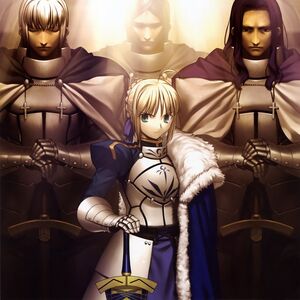What's that saying? You either die a hero or live long enough to see yourself become a Gilgamesh apologist.*
I've not been shy about my position that the longer Fate wears on the worse the additional material is. The franchise today is extraordinarily clarified compared to how it was back in the early 2000s, and that clarification hasn't really made it any better. All the new metaphysics don't really add anything, and most importantly the more time we spend with certain characters, the harder it is to like the direction being taken. I like Gilgamesh as a character, because he's a highly effective villain in the arcs in which he is the villain - he works well as a foil to both Saber and Shiro, and his megalomania matched with his overwhelming strength makes him entertaining to watch. And his defeats are very satisfying as a result. I don't really like Gilgamesh the interstellar king of gold who rules over the infinite potential of the human race.
There are other characters like this as well, though the reason why it's bad differs. I don't like the increased clarity surrounding Camelot, because that clarity stemmed from parts of the Arthur myth I don't particularly like, and see as basically medieval French fanfiction.
In saying all that, the longevity and financial success of the franchise has also produced stuff I like, so you win some you lose some

*Then again, CHAOTIC GOOD lol


